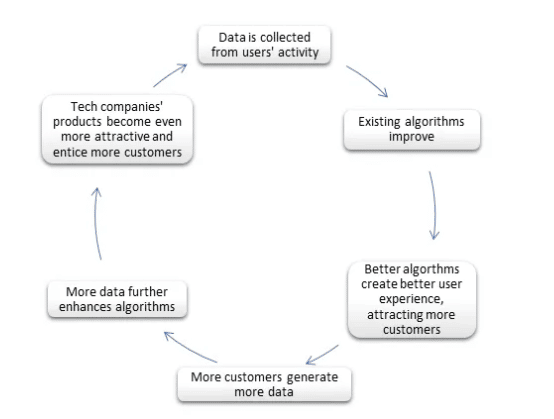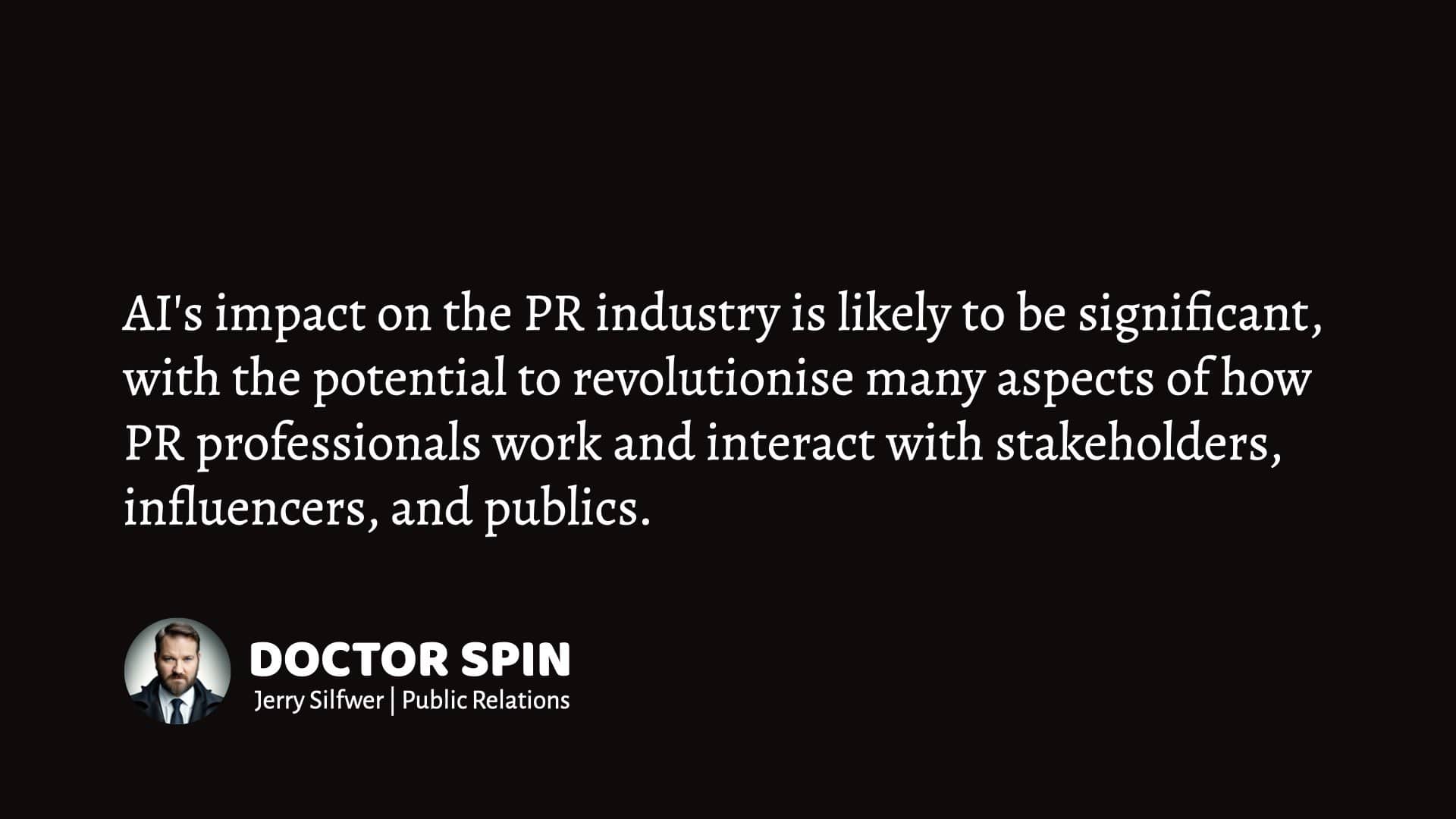AI is threatening to destroy capitalism.
OpenAI:s CEO Sam Altman recently hinted at an exciting proposal about the future of economic systems:
“I think capitalism is awesome. I love capitalism. Of all of the bad systems the world has, it’s the best one — or the least bad one we found so far. I hope we find a way better one. And I think that if AGI really truly fully happens, I can imagine all these ways that it breaks capitalism.”
— Sam Altman, CEO of Open AI 1Interview with Forbes: OpenAI’s Sam Altman Talks ChatGPT And How Artificial General Intelligence Can ‘Break Capitalism’
What could Altman be alluding to? How could AI potentially break capitalism?
In this blog post, I’ll suggest a few AI mechanisms that will, at the very least, force us to rethink the current models of capitalism.
Here we go:
4 Ways AI Can Break Capitalism
Many experts and scholars are now worried about the future of capitalism. Can such a successful and resilient system withstand the upcoming AI challenges?
1. Disrupting Supply and Demand Further
Supply and demand are cornerstones of capitalism. Demand is a challenging prospect for capitalism since we might reach a point at which the global population peaks and starts declining. Our current models of capitalism will struggle without a natural growth of demand.
The digital transformation, however, has already disrupted the supply function; information and digital products can be copied endlessly (with nearly zero production costs). This has impacted many industries already and allowed major tech companies to dominate markets by imposing artificial scarcity.
AI will further accelerate the deterioration of supply and demand functions in the short term. In the long term, AI will likely change the fundamental dynamics by steering us into becoming fully dependent on centralised AI technology.
2. Eliminating Wealth Creation Distribution
Ownership of the means of production has always been a central function of capitalism. This has always been the central knot of Marxist critique against capitalism; wealth accumulation favours the “haves” on behalf of the “have-nots.”
AI technology is poised to further centralise wealth by favouring those who can research, develop, and run complex algorithms.
“The most momentous challenge facing socio-economic systems today is the arrival of artificial intelligence. If AI remains under the control of market forces, it will inexorably result in a super-rich oligopoly of data billionaires who reap the wealth created by robots that displace human labor, leaving massive unemployment in their wake. […] For the sake of social well-being and security, individuals and private companies should not be allowed to possess any exclusive cutting-edge technology or core AI platforms. Like nuclear and biochemical weapons, as long as they exist, nothing other than a strong and stable state can ensure society’s safety. If we don’t nationalize AI, we could sink into a dystopia reminiscent of the early misery of industrialization, with its satanic mills and street urchins scrounging for a crust of bread.”
— Professor Feng Xiang 2Opinion piece in Washington Post: AI will spell the end of capitalism
“Workers” will have no choice but to use AI technology in exchange for the only thing that could allow them to share in the wealth — their user-generated data. Those who decide to keep their personal data will be outcompeted by other workers powered by leading AI systems.

Read also: Say Hello To My Replika AI
3. Dissolving Value of Human Labour
Owning the means of production has traditionally been balanced by the production system’s need for work. This has distributed at least some generated wealth and provided millions of humans with meaningful occupations.
“A new class of ‘useless’ people will be formed, who will simply become irrelevant and redundant in the economy operated by AI algorithms and robots. Their resentment towards the wealthy will likely lead to significant turmoil in society and destabilizing consequences.”
Source: Sukhayl Niyazov, independent writer 3Medium: The Future of Capitalism in the Age of AI
While the Industrial Revolution disrupted the value of manual labour, AI will disrupt the value of intellectual and creative labour.
Cheap labour is “good news” for any capitalist system, but the system exists on a foundation of human tolerance. There’s a risk that AI will make too many types of labour superfluous too quickly and thus threaten capitalism’s core demand.
Read also: The Reykjavik Press Release — ChatGPT
4. Outsourcing Management to Smart Contracts
Owning AI systems seems like a future-proof bet. But how many can realistically own such systems if we cannot offer the system itself any capitalist value through human labour?
Corporations (and nations) could run AI systems through blockchains and smart contracts without requiring human ownership. Eliminating human error from the ownership equation could become a capitalist advantage in an increasingly competitive marketplace.
If everyone gets equal shares (and votes) in centralised AI systems and thus benefits from wealth production without investing human labour in return, we cease to be capitalist economies.
“This is behind Big Tech’s unstoppable drive for growth, which leads to monopolisation and enclosure under the winner takes all principle. If we consider AI as a GPT — technologies that alter society’s economic and social structures — we need to come up with alternatives in terms of ownership and governance. The commons is proposed as an alternative for thinking about how to organise AI development and how to distribute the value that can be derived from it. Using the commons framework is also a way of giving society a more prominent role in the debate about what we expect from AI and how we should approach it.”
— Reader in Technology & Society, University of Westminster 4Verdegem, P. Dismantling AI capitalism: the commons as an alternative to the power concentration of Big Tech. AI & Soc (2022). https://doi.org/10.1007/s00146-022 – 01437‑8
Read also: AI & PR: Beware the Artificial Content Explosion
Should Capitalism Be Saved?
These four AI outcomes pose a real threat to capitalism:
While capitalism has proven to be a resilient (and facilitating) system throughout the Industrial Revolution, there is nothing to suggest that it cannot survive the AI revolution through adaptation.
The main question is whether we should find ways to make capitalism work as we face these challenges, or should we seek an alternate economic system for the future of humanity?

THANKS FOR READING.
Need PR help? Hire me here.

PR Resource: How AI Will Impact PR
PR Beyond AI
Whenever I’m asked what I do for a living, I reply, “I help organisations to communicate better.” That, to me, has always felt like an accurate and meaningful answer.
But progress is unavoidable.
As the AI Revolution makes its presence felt, I think about what ‘communicating better’ will mean as we move forward.
I’m wondering:
Replacing Humans — A Good or Bad Idea?
During the Industrial Revolution, society underwent three distinct phases:
Based on the three phases of the Industrial Revolution, we can see that whatever comes afterwards is a natural outcome of the industrialisation process.
The result wasn’t terrible. The AI Revolution may lead to similar outcomes.
How AI Will Impact PR (Probably)
Overall, AI’s impact on the PR industry is likely to be significant, with the potential to revolutionise many aspects of how PR professionals work and interact with stakeholders, influencers, and publics.

There are several ways in which artificial intelligence (AI) is likely to impact the public relations (PR) industry.
Here are a few examples:
More IT = We Need More (Not Less) PR Skills
Historically, societal progress has often meant that humans have been freed to think, communicate, and create. And it’s usually in these rare and inspired times of enlightenment that we take great strides towards discovering meaning, creating art, and understanding the universe.
For better or worse, public relations is a lubricant for the interface between the industrial systems and real people engaged in producing and consuming.
This is how PR professionals have found their role in the greater scheme of societal development.
This is likely how we’ll find our footing beyond AI, too.
In a post-AI society, human-to-human communication skills will likely be as valued as they are today. Perhaps even more.
Read also: PR Beyond AI
Annotations
| 1 | Interview with Forbes: OpenAI’s Sam Altman Talks ChatGPT And How Artificial General Intelligence Can ‘Break Capitalism’ |
|---|---|
| 2 | Opinion piece in Washington Post: AI will spell the end of capitalism |
| 3 | Medium: The Future of Capitalism in the Age of AI |
| 4 | Verdegem, P. Dismantling AI capitalism: the commons as an alternative to the power concentration of Big Tech. AI & Soc (2022). https://doi.org/10.1007/s00146-022 – 01437‑8 |
| 5 | Silfwer, J. (2023, March 20). The AI Content Explosion. Doctor Spin | The PR Blog. https://doctorspin.net/ai-content-explosion/ |


